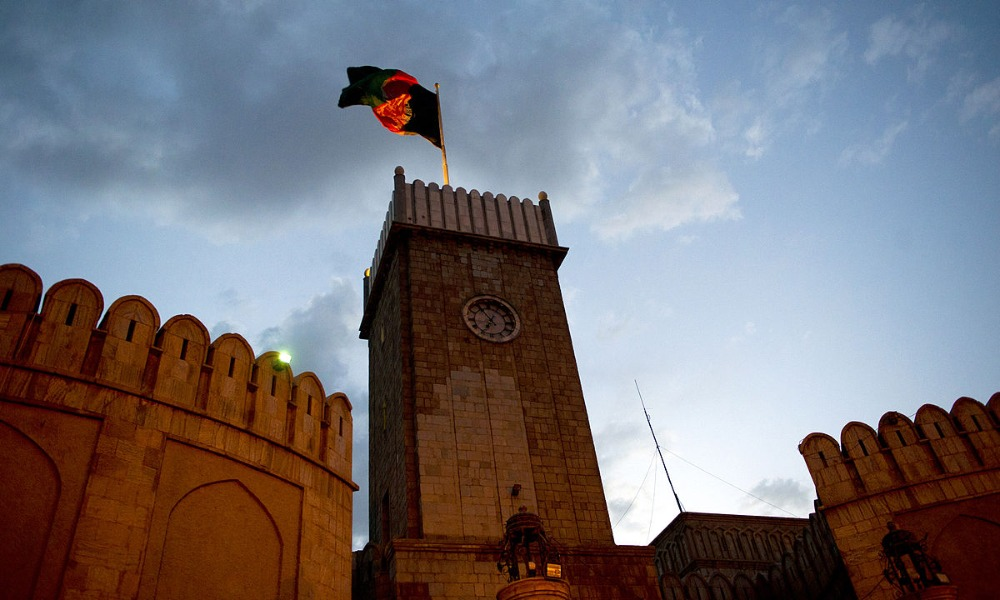Civil society groups hit out at govt, calling it a ‘dictator’ system

Seven Civil Society Organizations have jointly slammed government for compromising on democratic values, and went as far as to label government a “dictatorship” and Afghanistan a country its people no longer consider safe to live in.
In a position paper on Afghanistan’s Peace Process: Do Not Compromise on Demecratic Values & Civic Rights in the Intra-Afghan Peace Talks, the group said “the incumbent government is steeped in wide-spread corruption that has jeopardized and brought into question the essence of their governance.
They stated the current form of democracy is not ideal and is in fact a nominal one.
“The government epitomizes dictatorship. Power has not been actually separated; autonomy of the three main powers is questionable; and the judiciary is now working under the command of the President leaving judicial institutions with little to no autonomy.
“Even independent commissions have lost their independence and are now under the command of the president,” the paper stated.
The group noted that Afghans have no physical, psychological, nor legal security and every day is marked by a loss of a dear one. People live in “utter fear”, the group said.
The group also pointed out that over the past 20 years, Afghanistan has made enormous strides but despite this and considering the level of financial aid, and military support Afghanistan has received, these achievements could have been far greater in number and in size especially in remote provinces that still remain severely underprivileged and underserved.
The group stated that given that existing circumstances in Afghanistan are more concerning then ever, achievements made are also under serious threat.
The sharp increase in targeted killings has caused the civil society work space to shrink and activists are being restricted at a rapid pace, they said.
According to the group, human rights, particularly those of women, have deteriorated the most. “Many conservative groups have formed in the country which threaten many of Afghans’ contemporary achievements including freedom of speech, democratic ideals, and the civil society.
“Mullah Ansari of Herat, Jihadi Leader of Takhar, and Gulbuddin Hekmatyar in Kabul are a few among many others who have rebelled and who are chronically
instigating their constituents against Afghanistan’s democratic ideals,” the paper read.
On the issue of killings of civil society activists, the group said government has “no workable mechanism in place for the protection of our civil society activists, human rights defenders and journalists, and for them, their protection is clearly not a priority.”
“Civil society activists, human rights defenders, and journalists are being systematically targeted and killed,” the group stated.
They stated that recent targeted killings have adversely affected people’s emotional and psychological wellbeing to a point where people now live every moment of their lives in fear.
“People have been severely discouraged, they no longer have the willpower, the desire or the motivation to create or innovate or to initiate civic undertakings.”
The group also questioned the legality and legitimacy of political governance in the country. Given that provincial council elections should have been held three years ago, the group stated that these official bodies have since been functioning illegally.
The group also stated that “independence of the three state powers is critically questionable”, the paper stated adding that “the president has always exploited his power and authority and has brought into question the independency of the other two powers” – that being parliament and the judiciary.
The group also stated that “wide-spread corruption has resulted in turbulence among the masses, decreasing social services to the lowest. Government’s accountability against its work and decisions is poor and access to information is also very limited.”
On the issue of the peace process, the group of seven said: “Despite months of negotiations, there has yet been no sensible and concrete results obtained by either of the sides, and an exacerbation of the problem is that the negotiating sides are yet to agree on the agenda and procedures of the negotiations.
The group also decried the fact that many local stakeholders including civil society and the youth have been excluded form the negotiations.
The group also asks what could the outcome be should Washington’s new peace plan be implemented.
It was made clear in the paper that should an interim government be the only way to resolve the crisis then the United Nations bust safeguard Afghanistan’s achievements.
